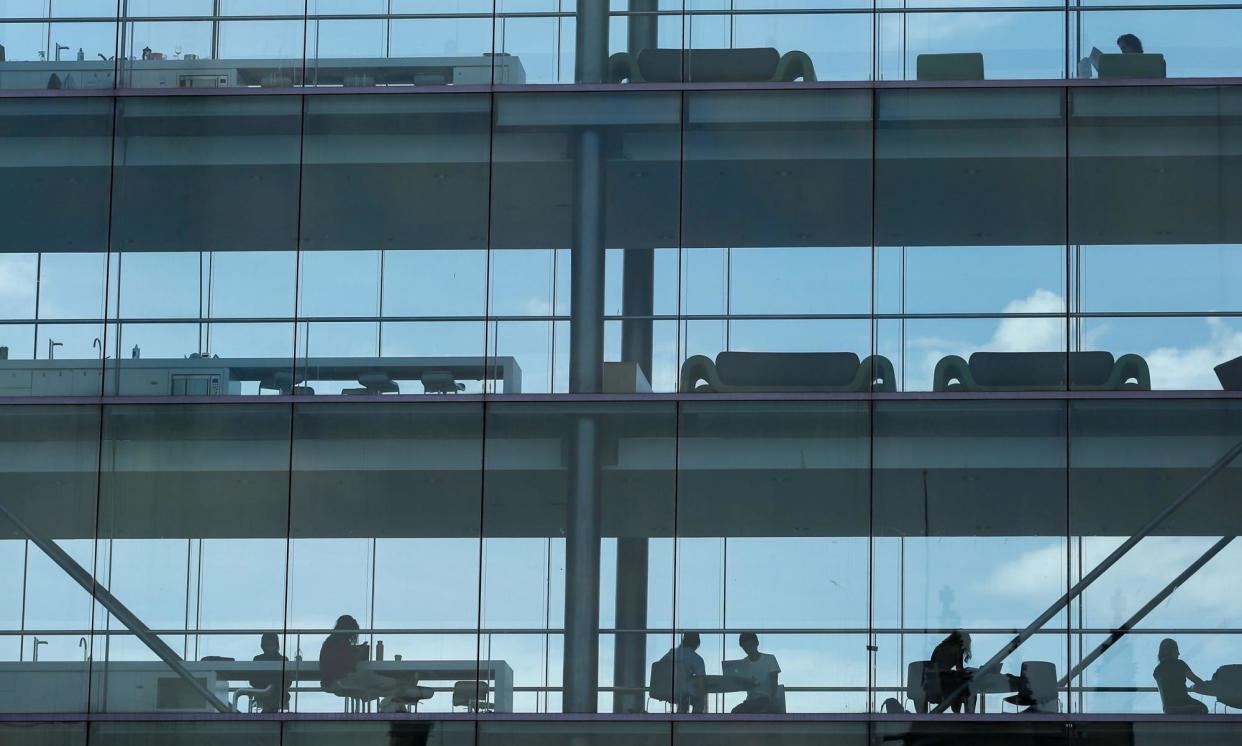Labor hikes international student visa fees as sector warns of ‘death by 1,000 cuts’

The Albanese government has more than doubled the international student visa application fee from $710 to $1,600 in the latest measure to reduce arrivals to Australia.
The government announced the move on Monday, confirming pre-budget speculation in the tertiary education sector that fee hikes will be used in addition to the international student cap as a means to reduce net migration.
The increase has been attacked by Abul Rizvi, the former deputy secretary of the immigration department, and the International Education Association of Australia, which warned that the sector was undergoing a “death by a thousand cuts”.
Australia had a net gain of 528,000 people from migration in 2022-23, due to an increase in arrivals since Covid restrictions lifted, particularly driven by international students and workers on temporary visas.
May’s budget projects that this number will fall to 260,000 in 2024-25, as the government applies a series of measures to reduce arrivals, including caps on international student numbers.
Rizvi and the chief executive of the International Education Association, Phil Honeywood, both predicted a decrease in applications from prospective students, with Australia’s fees out of kilter with international competitors.
“It’s really poor, short-term thinking,” Rizvi said. “We’re actually shooting ourselves in the foot: the people it will deter will tend to be good students with options.”
Honeywood said the fee increase, on top of a visa crackdown and proposed student caps, equated to “death by 1,000 cuts”.
“Already as a result of the caps announcement we have massive job layoffs happening,” he said, citing losses at IDP Education last month of about 6% of its global workforce.
“Many other providers are terminating employees. This isn’t just a massive hit to the Australian economy but real people with real jobs.”
He added: “It’s nothing to do with quality [of students], it’s all about trying to find a new revenue source to fund the Universities Accord implementation. They’ve taken the easy route.
“Four in 10 visas are now being refused. It becomes a lottery ticket – why would you waste that much money when you have more surety of going to the USA?”
Related: Job threat for Australian university staff as claims international student cuts are being weaponised
Honeywood argued that the government had “fallen victim to media commentary and a herd mentality” blaming international students as “scapegoats for housing shortages”.
In April the Independent Tertiary Education Council Australia labelled a fee hike for international students a “job killer”.
The federal education minister, Jason Clare, said the fee rise would “strengthen integrity in the international education system and help to fund important reforms recommended by the Universities Accord, including making Hecs fairer, paid prac and expanding fee-free uni ready courses”.
From 1 July a range of reforms take effect including increasing the minimum wage for temporary workers to qualify for a skilled visa to $73,150, shortening the duration of temporary graduate visas and reducing the age eligibility.
The home affairs minister, Clare O’Neil, said: “The changes coming into force today will help restore integrity to our international education system, and create a migration system which is fairer, smaller and better able to deliver for Australia.”
The chief executive of Universities Australia, Luke Sheehy, said the government’s continued policy pressure on the sector put at risk the country’sreputation as a “leading provider of international education”.
Sheehy expected the latest move to reduce student visa applications, in line with the government’s stated aim, while anticipating VET to be hit harder than higher education.
“This is not good for our economy or our universities, both of which rely heavily on international student fees, or the communities who benefit from the skills, knowledge and culture of the students who choose to study in Australia,” Sheehy said.
The chief executive of the Group of Eight, Vicki Thomson, which universities’ enrol more than 30% of the nation’s international students, said the decision was a “blatant revenue raising move” masked as deterring low quality students.
“Far from ‘restoring integrity in the international education sector’ this measure will be a deterrent to international students,” she said.
“The recent crackdown on visa approvals has already sent a strong signal that we are not open for business.
“Yet again our international students are being used as cash cows to prop up the economy, the national research effort and now to fund other government initiatives.”

 Yahoo News
Yahoo News 
